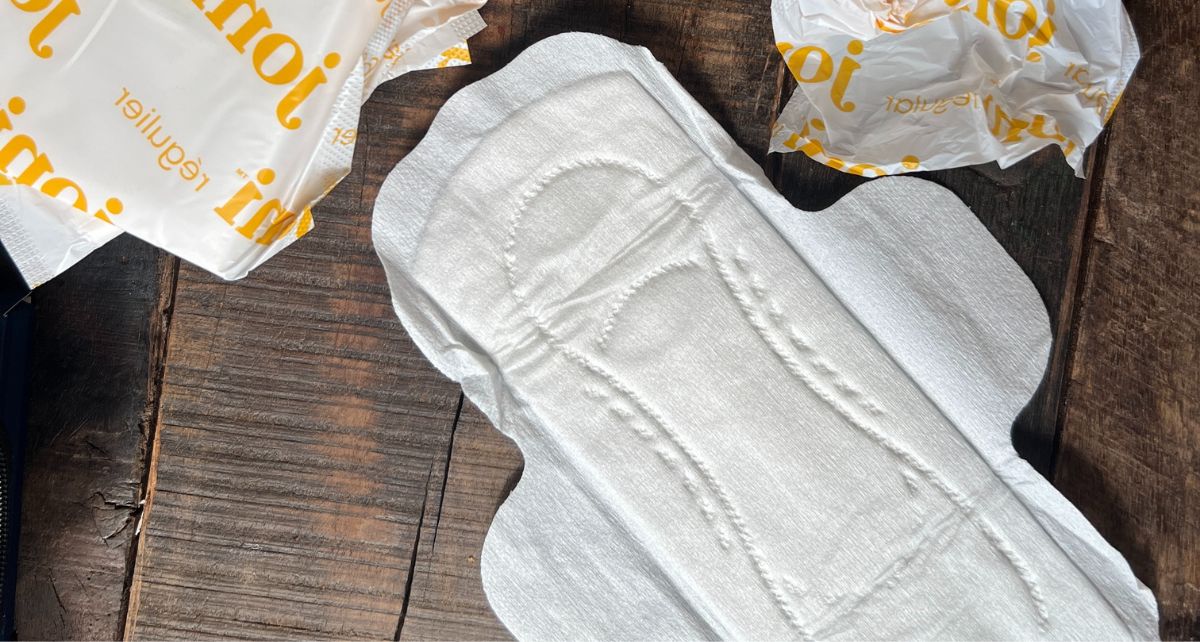What's the environmental impact of periods? We teamed up with Friday Things to bring you the history of disposable period care and the impact on the environment. According to an oft-cited 2018 study, "sanitary applications," which includes pad, tampons and their packaging, are the fifth most common plastics in the world's oceans.
When the question of sustainability comes up—because equity must be factored in—the answer is not an either/or situation when it comes to reusable vs disposable period care. Spoiler alert: shame and stigma should have no place in conversations about sustainability. Let's take a closer look!
The environmental impact of periods
Period products are a major source of environmental pollution. According to a 2018 study by the European Commission, ‘sanitary applications,’ which include pads, panty liners, and tampon applicators, among other items, are the fifth most common plastics in the world’s oceans.
They also make up a huge portion of the waste in our landfills. Over the course of a menstruating person’s lifetime, they may use up to 10,000 pads, tampons, and/or liners—which works out to 20 billion period products discarded every year in North America alone.
It takes 300 years for a conventional pad to break down in a landfill, which means the very first plastic pads ever made haven’t even begun to break down. The numbers are even worse when it comes to tampon applicators (500 years) and plastic packaging (500 to 600 years).
Producing disposable period products has an environmental cost, too. The production of regular pads or tampons emits 7.4kg and 7.6kg of carbon dioxide respectively, compared to 5.3 kg and 3.5 kg for their organic counterparts.
It wasn’t always this way
Many cultures have used tampon-like products throughout history, but tampons, as we know them, were invented by a Colorado doctor named Earl Haas in 1931. He sold his idea to Gertrude Tendrich, who began producing cardboard-applicator tampons under the name Tampax.
German gynecologist Judith Esser invented applicator-free tampons in the 1940s. Her product was launched in Europe in 1950 under the name o.b.
It wasn’t until the 1960s when chemists began inventing new types of plastic that period products became so environmentally unfriendly. Now, about 90% of period products are made from plastic.
And it doesn’t have to be this way. Disposables that are biodegradable, non-toxic, and plastic-free won't off-gas or leach chemicals into landfills.
Conversations about sustainability need to consider equity
When we’re thinking about how to make this industry more sustainable, we have to keep period equity in mind. Millions of Canadians can’t use reusable period products, like menstrual cups or period underwear, for tons of reasons. (For example: cost, sexual trauma, barriers to clean water, barriers to safe washrooms and/or health conditions.)
What’s more, if we believe menstrual care should be as accessible as toilet paper—which we do!—there’s only one real way to make that happen: provide disposable period products in public washrooms.
Menstruators need bodily agency so they can choose the sustainable option that best works for their bodies and lifestyles.
The goal is progress, not perfection
“We've been conditioned to believe that we have to choose a period care product and stick with it. But the reality is that our bodies and our needs change, and we should be able to build a period care solution where shame and stigma don't exist. If people want to continue to use disposable, plastic-free pads while also trying reusable options, that in itself is powerful and has an impact.” — Linda Biggs, co-founder, Joni
